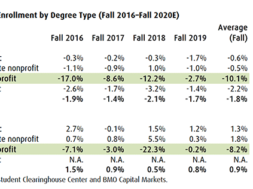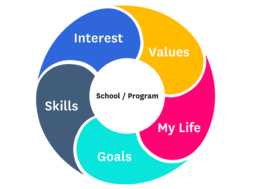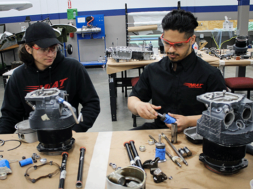
9 Practical Strategies to Keep Admissions Teams Motivated and Accountable in a Regulated World
By Gregg Meiklejohn, Co-founder/CEO, Enrollment Resources and Steve Davis, Enterprise Account Executive, Higher Education, Velocify
Enrollment management has changed irreversibly in the past decade. Stringent disclosure regulations, economic concerns and the growing demands of “digital-first” consumers have created substantial hurdles for proprietary school admissions teams. With increasing regulatory scrutiny, admissions departments have had to completely reinvent the admissions representative function – from a commission-driven job to one that requires a distinctly different skill set.
As the admissions function evolved over the last decade, a new conundrum emerged that many schools still struggle with today: how to inspire peak admissions rep performance when a school can no longer offer financial incentives. Schools and their partners have taken a number of fresh paths to adapt to this new reality – with varying levels of success. But there is still a long way to go.
Here is our recommended framework for keeping admissions teams effective, accountable and motivated that is based on our work with thousands of proprietary schools.
1. Give admissions reps a sense of purpose
The best way to motivate team members, regardless of their organization, is to give them a clear sense of purpose. What better way to do that than to help an admissions rep understand the importance of their role in facilitating a major life transition?
Admissions reps play a pivotal role in making sure a student prospect has considered everything needed to be successful in their training and transition to a new career. Understanding the importance of their role in shepherding prospects through the process makes admissions rep work meaningful.
You can even incorporate this aspect into your hiring process through predictive testing to find admissions rep candidates with a propensity for serving others. People who truly want to see others get ahead in life are a natural fit for the admissions rep position.
Don’t forget to reinforce this sense of purpose periodically.
Ask reps to write down 10 to 20 reasons how they, through their work, positively affect lives around them.
Have them post those reasons at their desks so they can read the list every morning. This will help motivate them and galvanize their sense of social purpose. Reacquainting a rep with why her work is important to those around her is likely to carry over into communications with prospective students, and have a positive effect on enrollment rates.
2. Provide a blueprint of best practices to follow
The foundation of a successful enrollment marketing and management function is a structure that is based on ethical best practices. Following these best practices keeps admissions reps focus squarely on their purpose, which is meeting the needs of the potential student while staying in alignment with regulatory requirements.
Ethical best practices dictate that qualification is a highly personalized, three phase process:
- Career & life path/training fit
- Support structure assessment
- Student fit with school
Career & life path/training fit: In career school admissions, it’s absolutely crucial to have admissions professionals who can help prospects understand the challenges they will face on their new career path and what they need to succeed.
Before a student can be qualified to see if they are a fit for the school they need to be assessed for readiness and ready to make a big life change. Admissions reps need to address sometimes difficult topics like whether a student is ready and willing to start at the bottom once they finish school and transition to a new field.
Support structure assessment: Of equal importance, admissions representatives need to determine whether the prospect has an adequate education plan that includes day care, transportation, and sufficient support from family to help them through this transition. The admissions rep can help prospects approach career training and their larger career transition with eyes wide-open.
Student fit with school: Only after a prospect has addressed issues above should an admissions rep assess whether the school is the right school for the prospect. For example, if a prospect is allergic to chemicals, a rep’s cosmetology school may not be a good match for the prospect’s career aspirations. To be effective, the admissions rep has to be empowered to say NO to a prospect if they are not the right fit.
So how do you keep admissions reps in alignment with ethical best practices in qualifying students?
3. Set reps up for success from the start with clear expectations
Because we work within the constraints of a regulated environment, it’s equally important that reps understand they must accomplish their goals the right way, by following ethical best practices in the qualification process and beyond.
Reps should know from day one that best practices are nonnegotiable and that there are serious consequences – for themselves and the school – for noncompliant communications and activities that stray from the school’s ethical best practices.
4. Provide proper onboarding to avoid future failures
A clearly defined onboarding training program will ensure that new admissions reps understand what’s expected and have sufficient knowledge about the school and its programs to effectively represent all that the school has to offer. In addition to helping get them started on the right path, it can prevent future performance problems that can be costly for the school.
To avoid these problems, put your ethical best practices in writing in each new admissions rep’s job description, clearly spelling out the consequences of noncompliance.
By being transparent, you let admissions reps know from day one that following best practices is mandatory part of their job that will be enforced. Fortunately, monitoring and managing performance has become easier in recent years with innovative new technology tools.
5. Empower reps with the latest technology
Without sufficient technology resources to manage the conflicting demands of a typical day, admissions rep frustration can grow and morale can suffer. But the right technology can calm the chaos and enhance admission rep productivity.
More importantly, automating routine tasks and getting away from paper workflow elevates the admission rep’s value in the enrollment process. Freeing them up to focus more on prospective students and less on administrative work takes the admissions rep’s role to a different level.
“The more that automated workflow minimizes clicks and fades into the background, the more we can expect from advisors on product and process knowledge to help prospective students.” – Business Intelligence Executive, Multicampus Velocify Client School
6. Provide opportunities to learn new skills
Empowering your reps with the best tools and technologies not only helps them better meet prospect expectations, it also helps your reps develop transferable new skills like proficiency with popular software programs. Software proficiency increases productivity and enables admissions reps to contribute at a higher level. Because computer skills are in high demand, it also strengthens an admissions rep’s value as an employee and future career prospects.
For many, the ability to build new workforce skills is highly valued, and in the case of millennials, more valued than making more money.1
For these reasons, hard and soft skills training can serve as yet another source of motivation by keeping your team challenged and energized.
7. Set expectations around high value activities, not results
Another way to motivate peak performance is to find high-value activities that a rep can control and set performance goals and expectations for productive effort. Many mediocre or low-performing reps wrap themselves up in seemingly useful busy work. But, in reality, only 10 percent of the activity reps do is actually useful. If you can increase the high value activity ledger up just 10 percent to 20 percent, you essentially double the effectiveness of a rep.
This can be accomplished in a number of ways, from harnessing admissions automation data or by something as simple as creating a point system. For instance, you can set up a simple point system with a goal of reaching 80 points a day. It can be structured so that the rep gets 20 points for completing high value activities (the effective work), like interviews, tours, meeting with sponsors or referral sources, but only one point for busy work, like sending a basic follow up phone message to a stale lead.
This is highly motivating for two reasons: 1) how the rep configures her day is under her control, and 2) the rep understands what the school values and can prioritize daily activities accordingly. Focusing on valuable activities and not results enables admissions reps to thrive in the new constrained admissions environment.
8. Inject some fun into reaching goals with “gamification”
Performance can also be enhanced with “gamification” techniques that harness data from admissions automation. With “gamification,” a school can create role-specific goals and interactive challenges that are tied to admissions reps’ daily tasks. For example, one Velocify client school uses Velocify data for productivity competitions between the admissions teams at its regional campuses. The friendly competitions help keep everyone motivated and make the job fun while keeping the team productive and accountable.
As with the manual point system, managers can tie recognition to the key performance indicators (KPIs) they are tracking, such as number campus tours scheduled or average time to answer, against targets. Admissions staff can see where they stand against others and best-in-class benchmarks throughout the day by monitoring the team’s digital Leaderboard. The Leaderboard supports transparency and openly communicates to reps exactly what is expected of them.
If point systems or competitions are not a good fit for a particular school’s admissions department culture, there are other ways to publicly recognize individual achievements. Congratulate the team for their successes, no matter how big or small. Try breaking up the daily routine by taking your team to a celebratory dinner, or a sporting event.
Sales performance guru Mark Hunter perhaps sums up the importance of celebrating successes best with his advice for those in customer facing roles:
“At the end of each day, look back and congratulate yourself for the most significant thing you accomplished that day. It doesn’t matter how small it may have been. Never end the day without feeling good about it. Doing so will help you begin the next day in a much better frame of mind.” – Mark Hunter, The Sales Hunter2
9. Become your own marketing laboratory
We are of the view that lack of personal control or choice in one’s day is among the greatest causes of demotivation and stress. One way to avoid that is to provide some autonomy and liberate admissions reps to become their own marketing laboratory. Put them in charge of carrying out a series of performance improvement experiments, focusing on each aspect of their process of engaging with student prospects.
Every rep activity, from tour sequence to phone message to subject line can be tested for performance improvement. Reps can split test phone messages to see what is working better, or split test which activities in a given day lead to more productivity.
When a rep is testing aspects of her day through active split run testing, it is tremendously motivating as it gives the rep personal control.
Empowering reps to test processes and using a point system as a process of discipline are both ways to liberate admissions reps to make their day more interesting. This, in turn, leads to more personal control, performance improvements, nonmonetary motivation and retention.
In summary, establishing a clear sense of purpose, goals and expectations, together with top notch training and tools are the most powerful ingredients for admissions team success. And don’t forget to celebrate even the smallest successes.
Resources
- http://www.inc.com/ariana-ayu/the-quick-guide-to-motivating-millennials.html
- http://thesaleshunter.com/top-five-sales-motivation-tips/
GREGG MEIKLEJOHN specializes in strategic marketing. He is an expert in branding businesses through online and traditional public relations tactics. Gregg developed the award winning program Knowledge Communities, which has consistently given clients massive returns at pennies on the dollar (when compared to advertising). He is our company’s Scenario Planner, analyzing and calling industry trends before they emerge into public view. Gregg has over 20 years of marketing experience and frequently delivers workshops and teaching sessions via Webinar and at conferences North America wide.
Contact Information: Gregg Meiklejohn // Co-founder/CEO // Enrollment Resources Inc. // 250-391-9494 (PST) // Gregg@enrollmentresources.com // http://enrollmentresources.com
STEVE DAVIS, for more than a decade, has been consulting with education leaders to optimize enrollment management and improve admissions outcomes. Currently Velocify’s dedicated Higher Education Account Executive, Steve is recognized for his ability to understand and solve a client’s toughest enrollment challenges. Prior to joining Velocify, Steve was a Regional Vice President for ESM, A Xerox Company where he provided strategic admissions management consulting and solutions to educational institutions. Earlier in his career, he held various executive sales and advertising positions for Verizon and the Denver Newspaper Agency.
Contact Information: Steve Davis // Enterprise Account Executive, Higher Education // Velocify, Inc. // 303-471-5047 // sdavis@velocify.com // Social Media: @velocify













